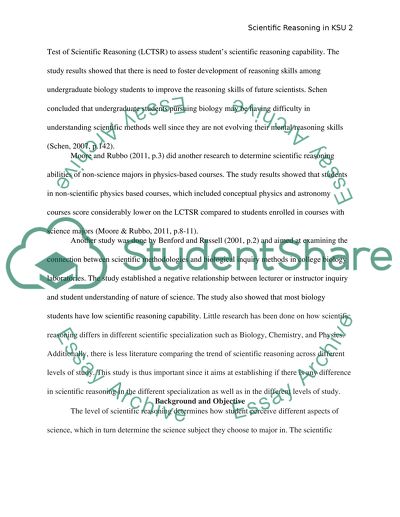Cite this document
(“The Scientific Reasoning Level of Students In the Faculty of Science Research Proposal”, n.d.)
Retrieved from https://studentshare.org/education/1454448-the-scientific-reasoning-level-of-studentsyie-in
Retrieved from https://studentshare.org/education/1454448-the-scientific-reasoning-level-of-studentsyie-in
(The Scientific Reasoning Level of Students In the Faculty of Science Research Proposal)
https://studentshare.org/education/1454448-the-scientific-reasoning-level-of-studentsyie-in.
https://studentshare.org/education/1454448-the-scientific-reasoning-level-of-studentsyie-in.
“The Scientific Reasoning Level of Students In the Faculty of Science Research Proposal”, n.d. https://studentshare.org/education/1454448-the-scientific-reasoning-level-of-studentsyie-in.


